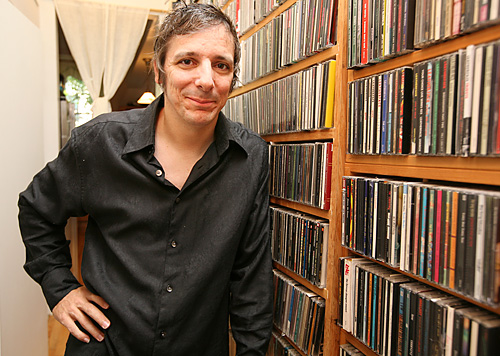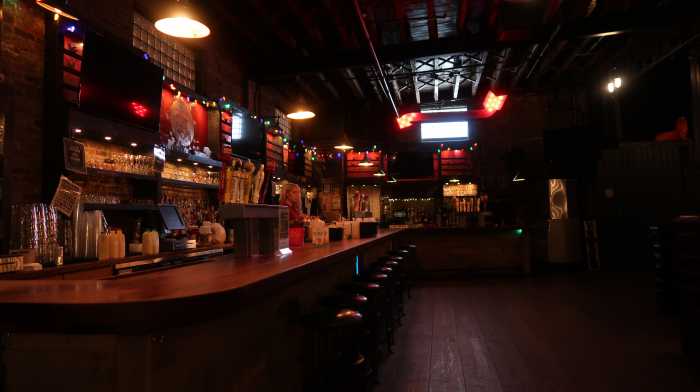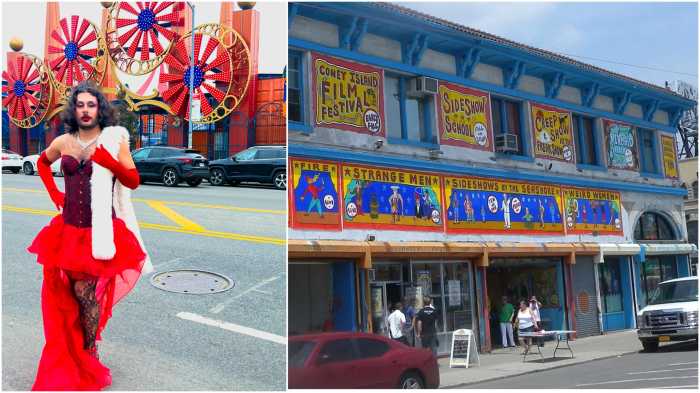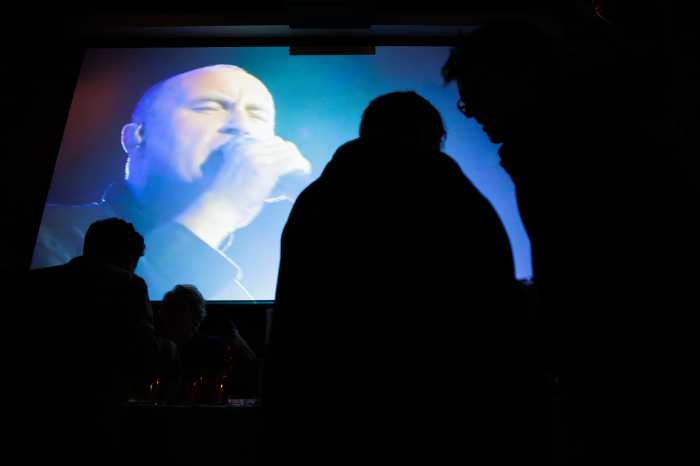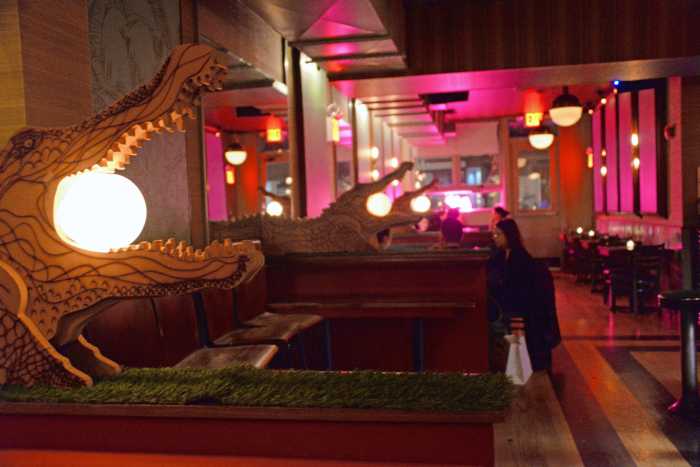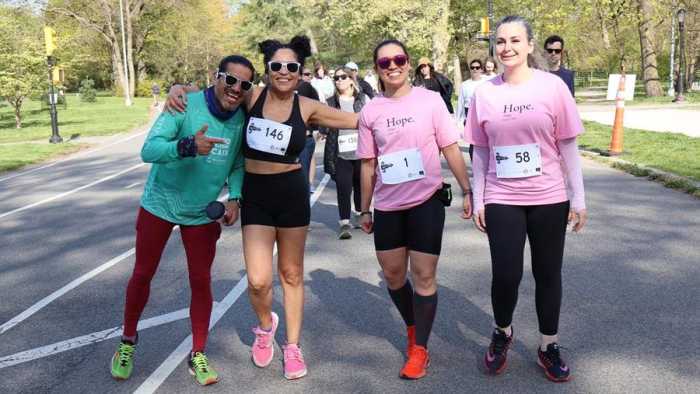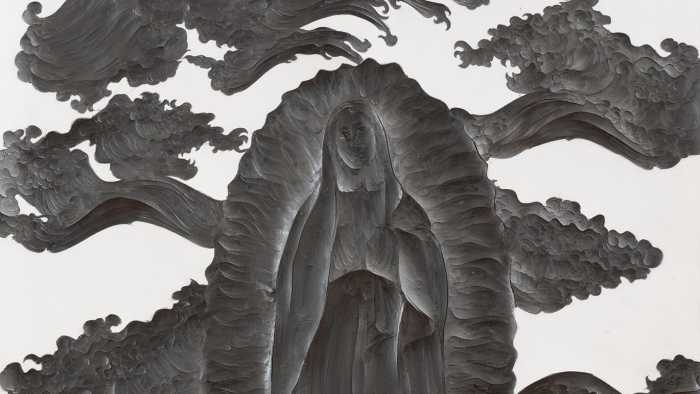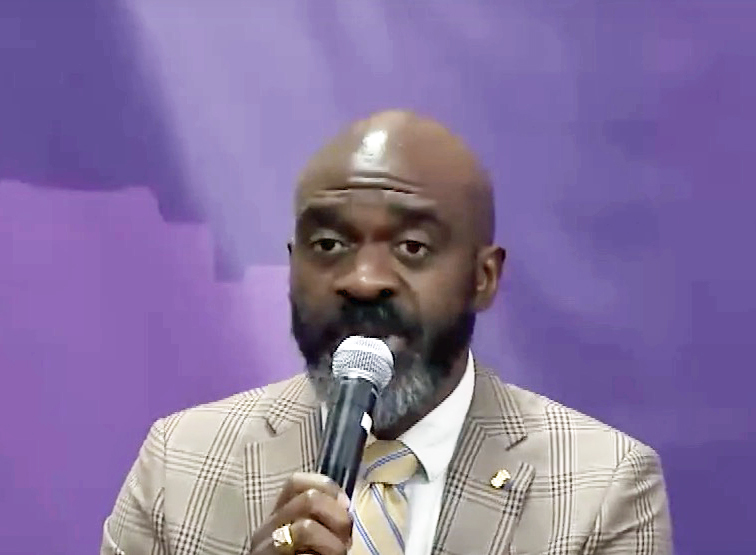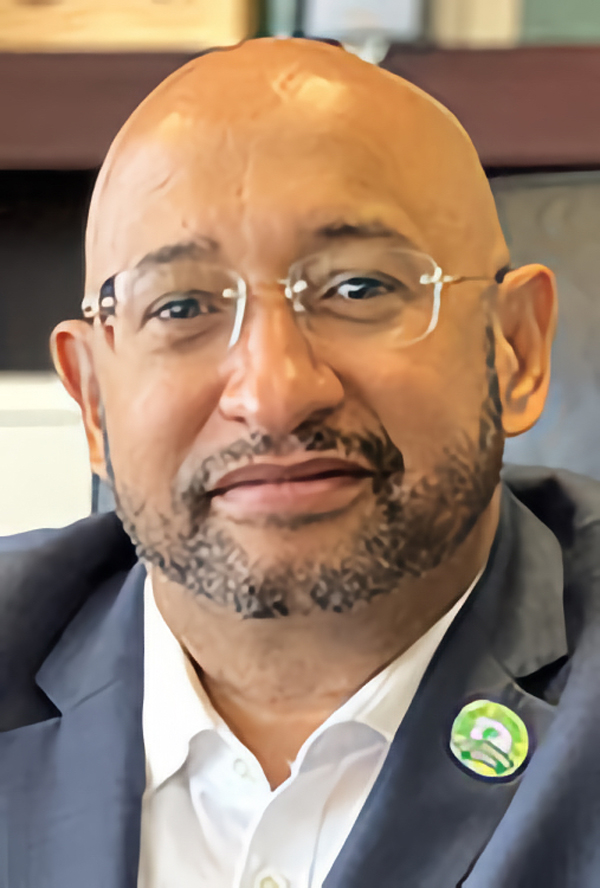Jack Rabid can rattle off band names like letters of the alphabet.
For 30 years, he has been covering independent music as the founder of the magazine “The Big Takeover,” which started as a one-page newsletter when he was a skinny teenager running around the East Village.
Named after a Bad Brains song, “The Big Takeover” is Rabid’s idealized version of roll and rock, where “quality is king and BS isn’t important.” And, after 30 years, the only things that have changed about the magazine are its glossy finish and page count, as, two times a year, the team churns out hundreds of pages of CD and live concert reviews and engaging Q&A’s — with no celebrity filler. Quality still reigns.
As Rabid celebrates the 30th anniversary of his semi-annual magazine with a music fest at the Bell House this weekend, we checked in with the music maven about his favorite interviews over the past three decades, why he doesn’t get jaded, and his move from the East Village to Park Slope to raise his 2-1/2-year-old son. Yes, folks, the godfather of punk music journalism lives in Brownstone Brooklyn.
Meredith Deliso: After 25 years in the East Village, you now live in Park Slope. Why did you move?
Jack Rabid: I got married, and we bought a house. The other half of it was, I started to really hate the East Village. I used to say you’d never get me out of there with a crowbar, but it’s not the East Village I grew up loving in the late 1970s. There’s not a trace of the underground culture anymore.
MD: How do you find Park Slope?
JR: I didn’t move here for the underground culture, but it certainly has followed us. I thought when I moved here, the days of walking to clubs were over — I had gotten spoiled walking to CBGB and Mercury Lounge. Now I have five places that are a five-minute walk. I love the Bell House — it makes sense, since we’re having the fest there. I love Southpaw, I think it’s a fabulous club. Union Hall’s a good place to see up-and-coming groups. I saw a show at Littlefield that I liked — Ken Stringfellow from The Posies. I have to check out Rock Shop, that just opened. Brooklyn has become what Manhattan was in the 1970s. You don’t have to have a lot of money to continue to pursue music or underground film or poetry, whatever your creative muse is.
MD: What was the scene like back then for you?
JR: Max’s Kansas City was my high school. CBGB was my high school. In the days without Internet, everything was original and personal. You met people the normal way — going to a gig. Everything was super organic back then. It was hard to find gigs — not everything was in the Village Voice. You had a friend call you up, say there’s going to be a secret show at so and so. It required people to get involved.
MD: So the club was your Facebook?
JR: I would agree with that. The only way you could meet strangers, people you barely knew, was by picking up the telephone if you had their number or finding a place where people with like-minded sensibilities would meet. That was one of the greatest things about the music scene — you were expected to talk to people. If I saw someone wearing a badge of a band that no one else knew about, I would say, “You know that band?” The guy would end up being my friend within a half hour.
MD: How would you say that compares to today?
JR: It’s a double-edged sword. It’s great that people can get in contact quite easily and spread news quite easily of what they’re going to be attending, but people also have a chance to take for granted this stuff, because it is so easy. The harder you make something for someone, the more excited they are about it, and the more they appreciate it. In a way, that’s what we had in our punk rock scene — a bunch of isolated people delighted to find out there were other people out there.
MD: Did that feed into the formation of the magazine?
JR: Without question. I never intended to be a writer or a publisher. When meeting people in New York, they always had something brewing. It was not, “I’m going to sit on my ass and smoke pot and go to gigs.” Everyone was inspired to find something creative. I had no aptitude as a filmmaker or a poet; if you saw the poems I wrote back then you would know. I wasn’t a sculptor or a short story writer, my painting skills were ridiculously awful. What I could do was talk. I would tell people all the time about my favorite bands. It was a natural progression to putting it on some paper one day when I found some bands no one was talking about like the Bad Brains. It still irks me that some of the greatest bands in the world, no one’s heard of. I’m trying to help, to contribute, to do something that wouldn’t have been done if I didn’t exist. I don’t think that’s a bad credo for most humans to live by, to the extent that it’s possible. This was the most accidental 30-year career I’ve ever seen. I didn’t think I’d do a second issue, or a third. It was never about that. I think when you do something out of love, you just keep doing it.
MD: Today, the magazine seems to cover everything.
JR: Anything we think is worthwhile. It’s a shame, a lot of people say, “Why don’t you cover rap or heavy metal or country?” We cover the roots of all of that. We can’t like everything, we’re just human beings. Between the 25 of us, we have pretty broad tastes. You have to know what you like and what you don’t like, then we focus on what we like and ignore what we don’t.
MD: When you started out, did you have interviews, live reviews and CD reviews in “The Big Takeover”?
JR: When we first started, it was one page. There wasn’t a lot of room for much. But then it was four pages, then 16, 22, 32. Every time we added more pages because we kept finding more things to write about. Before you know it, it’s 300 pages long. I think when we started, we wanted to talk about a couple of punk rock bands that nobody was paying attention to, so we were just trying to step into a little tiny void. Then Search and Destroy and New York Rocker went down, then we had a giant void. I had also grown disenchanted with punk rock. It was testosterone-filled 16-year-olds beating each other up. That was pretty anti-intellectual for me. Luckily, I had other tastes that had been cultivated. As I got older, the more I learned about music. I’m still learning about music. There’s never a shortage of artists I’ve never heard of from the last 100 years, or who’d I like to hear more of. I consider it a crime that I only have two Fats Waller CDs. There’s never going to be a time where I have enough music or heard it all. I can’t get jaded.
MD: Is that what’s kept the magazine from going soft?
JR: That’s a matter of opinion. If you grew up in the hard rock scene, you might think I lost it 27 years ago. I don’t have illusions that this is a universal thing. I know what I like — something really cutting edge, full of soul, intellect, that wasn’t created so someone could get laid or be a big shot, which is what I think 90 percent of a musician’s motivation is. We’re looking for the other 10 percent. I love talking to a guy like Billy Bragg and saying, “Why don’t people write so many sociopolitical songs any more?” His response was that when he was a kid, the coolest band was The Clash. To us, it was normal. When people inspire other people, it’s always for good. Without The Clash there wouldn’t be a Billy Bragg. There should be an endless chain of inspiration.
MD: What’s your inspiration now?
JR: I get inspiration from Paul Krugman’s column. I read that guy like he’s my own personal guru and I have to camp out on a mountain and hear him speak. I’m inspired by a movie like “Winter’s Bone,” which wasn’t your standard Hollywood drivel. It’s 2010, why shouldn’t we be making amazing films? They shouldn’t all be on Turner Classic Movies. There’s no shortage of inspiration.
MD: What are some of your interviewing highlights?
JR: The cover for Spin on Johnny Rotten three years ago was great, great fun. He and I got along like gang busters. He has a reputation of treating journalists like doormats or toilet paper, but he and I were clinking beers. He doesn’t suffer fools, I decided. If you treat him like a freak show, he’ll treat you like one back. I treated him like a human being. It was fun interviewing Brian Wilson in his own house, sitting at his own piano. It was marvelous to get to know Ray Davies a couple of times. My admiration for him knows no bounds. It was fun buying Joe Strummer a drink, hanging out with him backstage a couple of times in the late ’70s when I was a 17-year-old boy, being treated like a human being and not a nothing.
MD: How long do you think you’ll do the magazine for?
JR: As long as I can. I can’t be fired, but readers and advertisers can certainly fire me. The economy can fire me. I guess I’m real stubborn. I don’t give people what they want, I give them what I want. But they trust me. I know I don’t do it out of egotism. I love the music and I want to share it.



